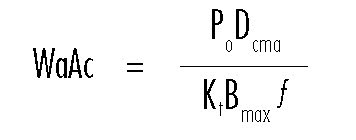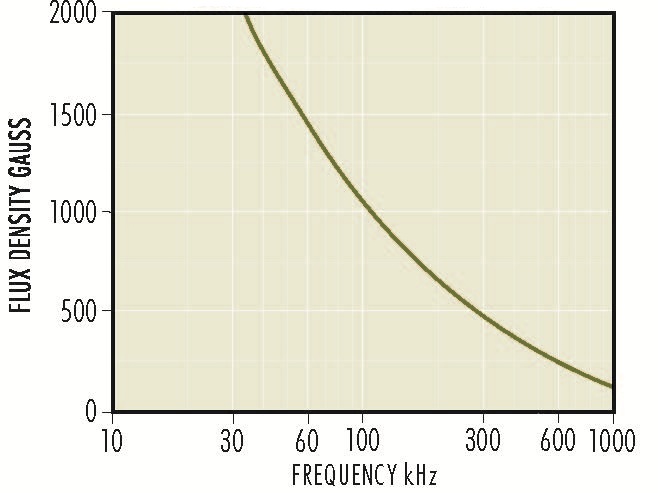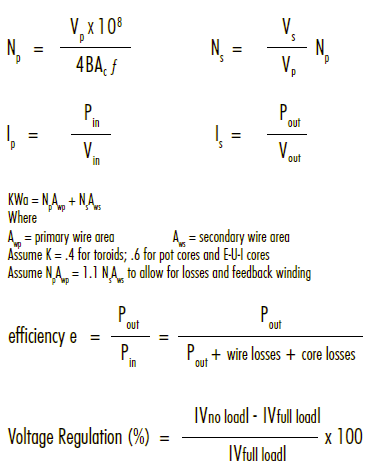Transformer Design with Magnetics Ferrite Cores
Magnetics offers two methods to select a ferrite core for a power application: core selection by power handling capacity and core selection by WaAc product.
Core Selection by Power Handling Capacity
The Power Chart characterizes the power handling capacity of each ferrite core based upon the frequency of operation, the circuit topology, the flux level selected, and the amount of power required by the circuit. If these four specifics are known, the core can be selected from the Typical Power Handling Chart.
Core Selection by WaAc Product
The power handling capacity of a transformer core can also be determined by its WaAc product, where Wa is the available core window area, and Ac is the effective core cross-sectional area. Using the equation shown below, calculate the WaAc product and then use the Area Product Distribution (WaAc) Chart to select the appropriate core.
WaAc = Product of window area and core area (cm4)
Po = Power Out (watts)
Dcma = Current Density (cir. mils/amp) Current density can be selected depending upon the amount of heat rise allowed. 750 cir. mils/amp is conservative; 500 cir. mils is aggressive.
Bmax = Flux Density (gauss) selected based upon frequency of operation. Above 20kHz, core losses increase. To operate ferrite cores at higher frequencies, it is necessary to operate the core flux levels lower than ± 2 kg. The Flux Density vs. Frequency chart shows the reduction in flux levels required to maintain 100 mW/cm³ core losses at various frequencies, with a maximum temperature rise of 25°C. for a typical power material, Magnetics’ P material.

WaAc = Product of window area and core area (cm4)
Ac = Core area in cm2
ƒ = frequency (hertz)
Kt = Topology constant (for a space factor of 0.4).
Topology constants Kt
Forward converter = 0.0005
Push-Pull = 0.001
Half-bridge = 0.0014
Full-bridge = 0.0014
Flyback = 0.00033 (single winding)
Flyback = 0.00025 (multiple winding)
The WaAc formula was obtained from derivations in Chapter 7 of A. I. Pressman’s book, “Switching Power Supply Design." Choice of Bmax at various frequencies, Dcma and alternative transformer temperature rise calculations are also discussed in Chapter 7 of the Pressman book.
FLUX DENSITY VS. FREQUENCY P PERM

Once a core is chosen, the calculation of primary and secondary turns and wire size is readily accomplished.

View Typical Power Handling Chart
View Area Product Distribution (WaAc) Chart
Download as PDFContact Magnetics